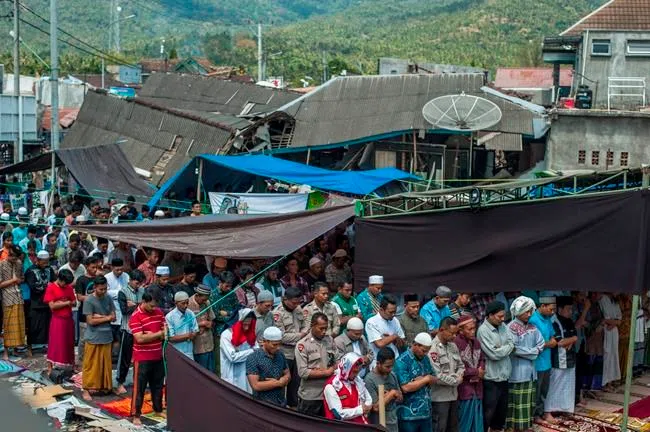
After Indonesia quake, a new worry: deadly aftershocks
MATARAM, Indonesia — After a deadly earthquake devastated the Indonesian island of Lombok last weekend, Husni Handayani thought the worst was over.
The powerful quake claimed hundreds of lives, wounded thousands more and displaced over 270,000 people. But it left her own home in the provincial capital, Mataram, still standing and nobody in her family was harmed.
On Thursday, though, a strong aftershock shook the walls of Handayani’s kitchen, prompting the pregnant 27-year-old to run outside in a panic. On a curb outside, she tripped and fell, glimpsing blood on her clothes before blacking out.
“When I woke up … I was in the hospital, and my (unborn) child was gone,” Handayani said, weeping as she told her story Friday in a green tent set up to house patients because it was considered unsafe to treat them inside.
